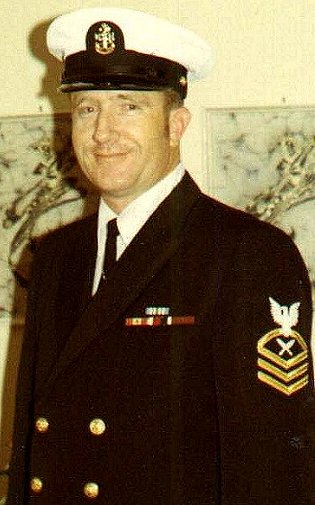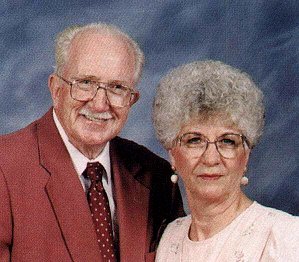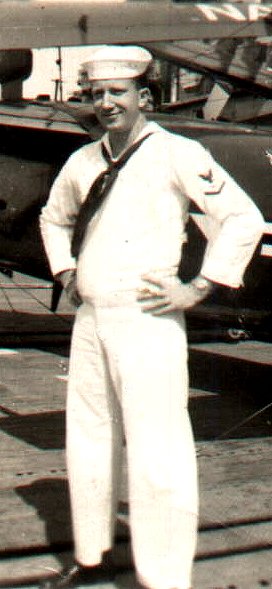The Six-Day War of Jews and Arabs From Ground Zero in Cairo, Egypt
by Chief Yeoman Charles Theodore Beersdorf, USN, Retired
The weather was hot and dry that first day of May 1967. It hadn’t rained in a very long time. The American Embassy van that picked up the Military Attaché crew was on time – believe it or not. The driver was the member of the military staff that had the duty the night before. He would go to each member’s house and pick them up. There was one stop after mine. Then the van would turn right and head south as it merged into the heavy traffic of the Cornish. The Cornish was a six-lane boulevard that ran parallel to the Nile River. One could easily see the great pyramids on the north side of the Nile. There was something unusual this morning. We in the van first thought that there had been a military coup. There were military police with their red berets on literally every corner of every street in and around Cairo.
The van arrived at the Embassy without incident and we departed and went to our respective offices. The Naval Attaché called a special meeting of the Naval Attached personnel and told us to get our dependents ready to evacuate in case the State Department so ordered. We were dismissed from work and before too long the van was loaded again and we were headed back to our homes.
The drums of war continued to beat.

The signs of war were everywhere. Headlights of the civilian and military vehicles were painted blue. All windows had to be shuttered at night. All unnecessary travel was discouraged. The Diplomatic Corp still had unlimited freedom although they had to register with the Egyptian police if they left their respective city of residence.
One night before the evacuation order was given, there was a knock at our front door. I went to see who was there. When I opened it there stood two plain clothed policemen and two uniform policemen. One of the plain clothed policemen could speak English and he said that I would have to go to their police department for questioning because I had been seen on the roof of my house using a flashlight to signal the Israel airplanes.
Almost immediately my landlord came to my defense and told them how utterly ridiculously his charge was. After some very heated debating in Arabic the four of them left. They never came back.
The order had come down to evacuate. The Embassy provided exit visas for our dependents and airplane tickets to Athens, Greece. All dependents would be flown our on TWA airlines on May 15, 1967. All military men remained behind.
For the next three weeks the drumbeat became more and more louder. Truckloads of military personnel and trainloads of tanks could be seen daily heading northeast toward the Sinai.

June 5, 1967 was a normal workday for the naval attaché staff. Or at least it was until an Air Force Sergeant came running into our office completely out of breath and acting like he had just seen a ghost.
From the Cairo International Airport to the American Embassy was about 20 miles. He made it in 15 minutes. That doesn’t seem so unusual except that under normal circumstances it is an hour’s ride. Donkey carts and Camels have the same right-of-way as any vehicle, and there were always plenty of them.
Just 15 minutes earlier he was in his office on the second floor of the Diplomatic Customs area when he heard a loud “boom” and then another “boom”. They seemed to be getting nearer. He walked over to his window which looked out on the main runway and just as he arrived at the window he observed an F-4 Phantom with the Star of David on its tail and fuselage. Then another one went streaking by. Then another one!
He said later, “I knew when the third one went by, it was time for me to head to the Embassy”.
He had just witnessed the Israeli Air Force destroying the entire Egyptian Air Force. Every single plane was destroyed. The Israeli Intelligence Service knew exactly when and where every plane would be at the exact hour. The Egyptian Air Force made a fatal mistake by doing the same old thing the same old way every day.
With the Egyptian Air Force destroyed, the invasion of the Sinai had begun. The Egyptian Tank Corps used the tactic of staggering their tanks. The Israeli tanks merely set their range finder on the first tank and then proceeded to pick them off one at a time. In addition to this, there was unfettered access to the tanks from the air. By the middle of the second day, the Egyptian English Radio station reported that the Egyptians had set up their second line of defense. When this announcement was made, the Egyptian government declared that the United States and Great Briton was providing air cover for the Israeli ground forces. This obviously was not true. Within a few hours word was received that diplomatic relations had been severed and all American Embassy personnel were to leave the country within ten days.
We of the Defense Attaché office had received our orders to destroy all classified material.
When the announcement was made that the Americans and British Military were providing air cover for the Israeli military, the Egyptian populous tried to storm the Embassy. The street immediately in front of the Embassy was very narrow and two cars could barely pass under normal conditions. This was a plus for the police that guarded the Embassy. When the unruly crowd of an estimated ten thousand arrived at the Embassy, the mounted police with long bamboo poles kept the crowd beaten off and they were never able to breach the wall surrounding the Embassy.
My boss, Lieutenant Gary G. Sick and I were ordered to leave Cairo and proceed to Alexandria, Egypt and arrange for a ship to take all of us Americans to Athens Greece.
When we arrived at Alexandria we parked in an underground parking lot. As soon as we left our car we were greeted by two secret police. They called us by name and welcomed us to Alexandria.

When we arrived at the Consulate of Alexandria we found the building had been razed by fire. The Consular and his staff had to take refuge in a walk-in vault to avoid the screaming mob. When it was decided that the group had to exit the vault, the Consular was armed with only a metal rod. He was the first to exit and had the rod raised and ready to strike. When he opened the vault door he was met by a group of firemen who had just finished putting out the fire. The Consulate was a complete loss. Everything! There were no injuries. After our reporting to the Consular, my boss and I went to an apartment of one of the secretaries where we had dinner.
After dinner my boss was discussing evacuation plans and all of a sudden there was continuous anti-aircraft fire coming from the coastal area. We knew there were no aircraft in the area. Israel had no reason to fly over Alexandria and the Egyptians had no planes to fly. For all practical purposes the war was over. As the shrapnel was falling, it could be heard hitting the sidewalk below. I walked out on the balcony of the apartment and just as I stepped out of the doorway, a pieced of shrapnel fell through the canvass awning above the balcony. It missed me by no more than six inches. I almost became the first American Serviceman to get a Purple Heart for action in the Six-day war.
Later that night my boss and I went to a very large hotel where we spent the night and made arrangements for the other Americans that would be arriving the next day via train from Cairo.
At night in the hotel my boss and I made plans as to how we would defend ourselves should the unruly crowd storm the hotel. We had two weapons: a longneck beer bottle and a pocketknife. We had put our beds end-to-end against the door so it would have had to been cut down to get in. We were on the second floor and the only way anyone could get to our room would be to climb over the balcony wall. He and I decided that I would hit them over the head with the longneck beer bottle and he would cut their fingers off if they tried to climb over.
We were in the hotel for three days. None of us was allowed to leave. The Ambassador and his staff did all the negotiating with the Egyptian Government.
On the third day we learned that the American Embassy in Athens had contracted with a passenger cruise ship to come to Alexandria and pick up all of us Americans. In the meanwhile a Landing Ship Dock (LSD) was steaming just off the coast of Alexandria with two thousand Marines ready to come to our rescue should the Egyptian government decide that they could no longer protect us.
The ship arrived from Athens and all the Americans were transported via bus to the port of debarkation.
The only thing that I brought with me of any real value that couldn’t be replaced was my coin collection. The Egyptian Government confiscated it. The State Department later tried to find it but without success.
All of us finally were aboard the cruise ship and there was only room for half of the personnel to sleep below decks. My boss was in charge of bunk assignments and, yep, you guessed it. I had a very nice rack for the two-day journey across the Mediterranean.
Two Egyptian Destroyers escorted our ship out of Egyptian waters. I vividly remember standing on the stern of the ship watching the two Egyptian Destroyers. All of a sudden, the two of them turned and was headed back the way they had come. As I searched for a reason for their apparent hasty retreat, I observed one of the most beautiful sights I have ever seen in all my life. Without a doubt this was the most beautiful. As the two Egyptian Destroyers disappeared over the horizon, I could see two American Flags flying high off the waters. The closer they came, the more beautiful they became. Under each of the flags was a Destroyer of the United States Navy headed full speed ahead to escort us to the port of Athens, Greece. This sight I will never forget, never! It is burned in my memory. It made me proud to be an American and equally proud to be a member of the United State Navy.
